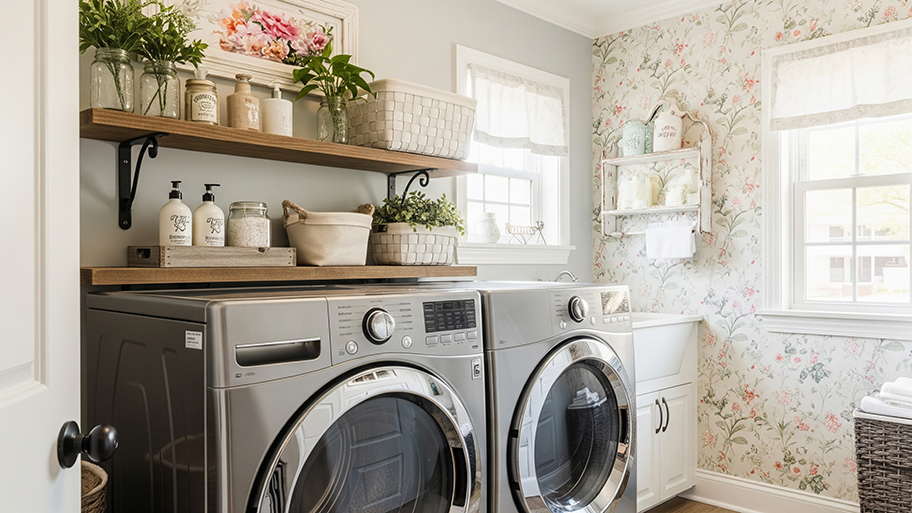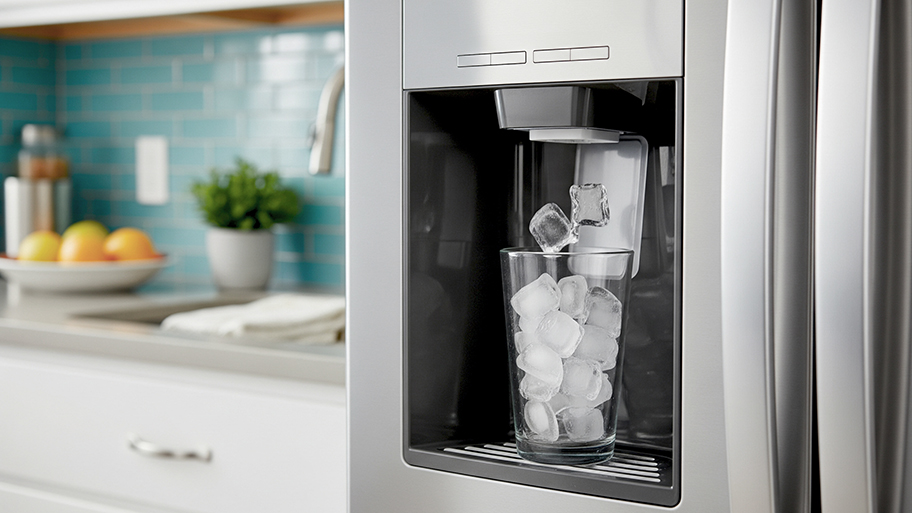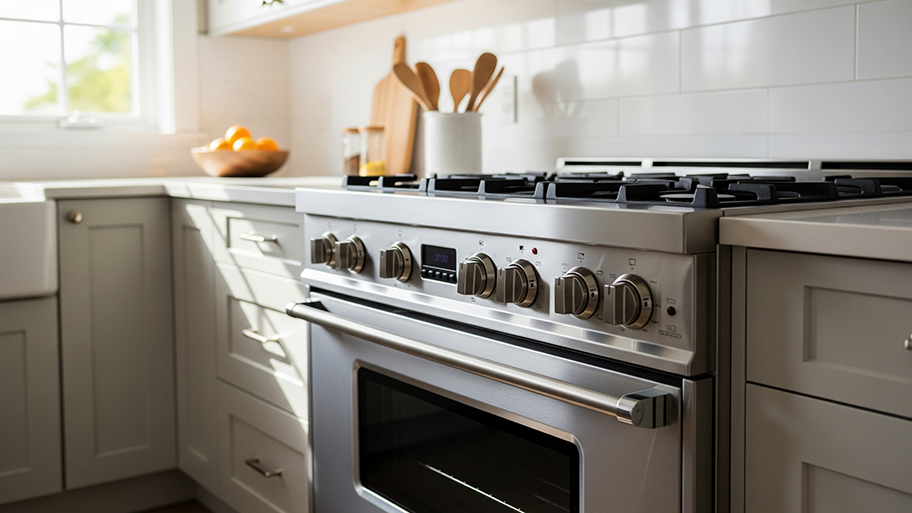
The cost to relocate washer and dryer hookups varies based on location, as well as whether your moving the appliances and adding new hookups. We’ve compiled a full price breakdown here.
Like your milk, this appliance has an expiration date


Your fridge is one of the most important appliances in your home—but it’s not going to last forever. Even the most well-maintained refrigerator eventually breathes its last chilly breath (and takes your now-spoiled milk with it). Luckily, you’ll probably notice a few signs before your fridge totally taps out, and there are a few ways you can prolong its lifespan. So, exactly how long do refrigerators last? This guide will tell you what you need to know.
Most refrigerators last between 10 to 15 years—but it varies by the brand, model, and maintenance. On the one hand, a high-end model can last for 20 years if well maintained. On the other hand, a low-end fridge that’s perpetually overstuffed might stop working after just a few years.
On average, you can expect a traditional fridge with a bottom or top freezer to last about 12 years before you need to install a replacement. According to a survey from Consumer Reports, you might get slightly less mileage out of a fridge with french doors, but it really depends on the brand.
Though fridges generally last about a decade, you can absolutely extend their lifespan. It’s all about regular maintenance. Since certain fridge repairs cost about as much as a replacement, you want to snuff out problems before they start. Use these tips.
Most refrigerators come with a warranty that covers the first year of use. Make sure that you assess how your fridge is functioning before the warranty runs out. If your fridge is defective, send it back ASAP and get a replacement.
Condenser coils, which are located at the bottom or back of your fridge, are a key component of any refrigeration system. Unfortunately, they’re also a magnet for dust and grime—and dirty coils will stress out your fridge. Make sure to clean your condenser coils one to two times a year using a brush and a vacuum with a wand attachment.
See that seal running around the inside of your door? That’s called a gasket—and it can crack, warp, or loosen over time. When this happens, your fridge starts to leak cold air. To maintain your fridge’s efficiency, clean the gaskets and lubricate them with a thin layer of petroleum jelly.

Not all of us have a large kitchen. It might be tempting to use the top of your fridge as excess storage, but this appliance actually needs some space to dissipate heat. At minimum, you should keep a 1-inch gap between your cabinets and the top of your fridge (though certain models may recommend more).
Every fridge-freezer combo has vents on the interior that aid in airflow. They’re usually located on the fridge walls or freezer ceiling. While we all love a fully-stocked fridge, avoid overstuffing it to the point that you block these essential vents. Otherwise, it could result in excess moisture, frost build-up, uneven cooling, and a stressed-out system.
Not every fridge has a water dispenser or ice maker. If it does, the water filter will help remove contaminants and bacteria from the water you consume. Make sure you change it every six months. This should only cost about $100 per year.
Let’s state the obvious: if your fridge isn’t cooling your food, there’s something wrong—but that’s not the only sign your fridge is about to kick the bucket. Typically, you get a few warnings before your fridge completely calls it quits. You’ll either notice it working harder than normal or not really working enough. Here are some signs that you need a new fridge:
There’s more condensation than usual on the outside of your fridge.
You notice water (that isn’t from a spilled drink) inside your fridge.
The appliance is hot to the touch (though a little warmth is normal).
Your refrigerator motor is unusually noisy.
Your refrigerator motor is unusually quiet.
Your food is spoiling faster than normal.
The inside of your fridge feels warm.
Your frozen food isn’t frozen.
There’s a puddle of water beneath the fridge.
If you notice any of these signs, call your local refrigerator repair service ASAP. They’ll be able to diagnose the problem. If your fridge is already near the end of its lifespan, you might want to nix any potential repairs and opt for a replacement instead.

Replacing a refrigerator costs anywhere from $500 to $12,000. There’s a huge range of prices because there’s a vast range of models and brands. A high-end smart fridge made from stainless steel can cost thousands more than a basic, fridge-freezer combo.
That said, the average homeowner spends $1,000 to $2,000 on a new fridge. There are options that work with most budgets. You just need to shop around.
From average costs to expert advice, get all the answers you need to get your job done.

The cost to relocate washer and dryer hookups varies based on location, as well as whether your moving the appliances and adding new hookups. We’ve compiled a full price breakdown here.

Depending on repair needs and machine age and type, the cost to replace a heating element in a dryer can vary. Learn the average repair costs.

Discover the average ice maker repair cost, key price factors, and tips to save. Learn how to budget for your ice maker repair and when to repair or replace.

Your gas stove may not light for a number of reasons, including problems with the safety valve or igniter. Learn how to troubleshoot why your gas stove is not lighting.

Understand the top reasons why your oven smells like gas, the severity of the issue, and how to address the causes before calling a pro.

Is your washing machine not draining? This is often an easy problem to fix. Keep reading to learn how to drain a washing machine.